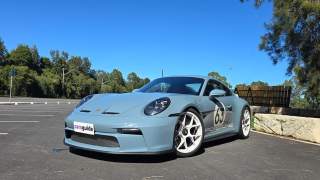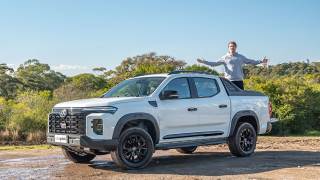
Planet-friendly combustion engines from Jeep, Ram or Peugeot? Stellantis testing e-fuels on existing engines to 'reinforce carbon emission reductions'

In a move that could see cars like existing Jeep 4x4s or Ram 1500 trucks continue to run into the future as near-carbon-neutral vehicles, the parent company of those and brands like Peugeot and Fiat, Stellantis, has announced it is investigating the use of e-fuels for existing engines.
The umbrella company for some of the biggest brands in Europe and the US says the e-fuel solution, if realised, could apply to up to 28 million Stellantis vehicles with combustion engines built between 2014 to 2029.
Testing consists of running existing engines on e-fuel made from “atmospheric CO2 and renewable energy”, though the program doesn’t affect or replace the company’s commitment to selling 100 per cent battery electric cars in Europe by 2030, and going “net zero” by 2038.
Read more about eFuels
- Australian eFuel could keep the combustion engine alive
- 'Why spend a fortune on old technology?': Volkswagen boss calls ICE cars and e-fuels 'unnecessary' when looking into next decade
- Would you pay $100 per litre for fuel to avoid an electric car? Synthetic fuels can save petrol-powered cars but more car companies need to support Toyota and Porsche's 'eFuels' to make them cheaper
The e-fuel testing aims to determine the “tailpipe emissions, startability, engine power, reliability endurance, oil dilution, [and effect on] fuel tank, fuel lines and filters” for existing models, meaning cars like petrol-powered Jeeps, Peugeots, and even Ram 1500 trucks could remain in use as almost carbon-neutral cars alongside BEVs.
Stellantis CEO Carlos Tavares explained the investment is a complementary move to the shift to battery electric vehicles, which Stellantis estimates would reduce “up to 400 million tons of CO2 emissions in Europe from 2025 through 2050”.
“We are doubling down on our fight against global warming by testing carbon-neutral fuel as a complementary solution to our holistic decarbonization approach,” said Tavares.
“While we remain steadfast in executing our aggressive electrification strategy, we must also find smart alternatives to address the CO2 emissions for the 1.3 billion existing ICE cars.

“It is also another action we are taking that is well aligned with our commitment to be carbon neutral by 2038.”
It comes after Stelantis’ rival the Volkswagen Group has been seen to be making seemingly contradictory moves within its stable of brands regarding EVs and e-fuels in recent weeks, with Porsche committing to e-fuel research and production, the Volkswagen brand CEO calling e-fuels a waste of time, and Skoda doubling-down on ICE engines.










Comments